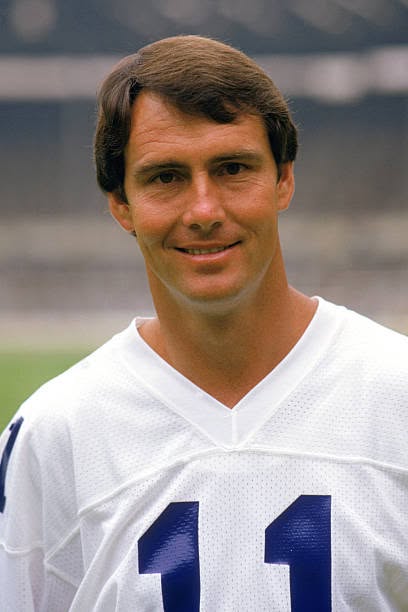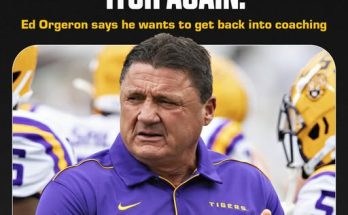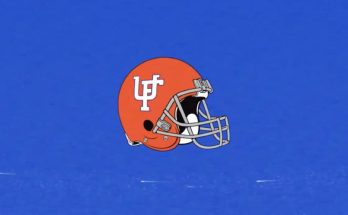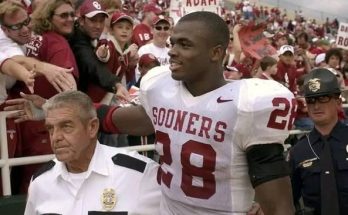In the pantheon of Dallas Cowboys greats, names like Roger Staubach, Troy Aikman, and Emmitt Smith roll effortlessly off the tongue. They are legends, champions, and symbols of a franchise synonymous with excellence. But for every superstar who basked in the limelight, there are those who carried the torch during turbulent times — with grit, resilience, and unwavering heart. Danny White is one such name. Often overshadowed and rarely celebrated with the grandeur he deserves, White remains one of the most underrated quarterbacks in Cowboys history.
This is the story of a man who followed a legend — and became one in his own right.
The Legacy He Inherited
When Roger Staubach, “Captain America” himself, retired after the 1979 season, the Cowboys were left with enormous cleats to fill. Staubach was not only a two-time Super Bowl champion, but the face of the franchise, a Navy hero, and arguably the most iconic quarterback of the 1970s. The burden of replacing such a player was immense — a role few would want, and fewer could succeed in.
Enter Danny White.
White had quietly bided his time as a backup, holding the clipboard and soaking up every nuance of Tom Landry’s complex offensive schemes. Many forget he was already a proven athlete, a record-setting quarterback and punter at Arizona State University who led the Sun Devils to an undefeated season in 1975. In fact, he was so talented that the Cowboys initially used him as a punter, a dual-role rarely seen in the modern game.
When Staubach stepped away, White stepped in — and the Cowboys didn’t miss a beat. Dallas made it to the NFC Championship Game in each of White’s first three seasons as the starting quarterback. He wasn’t Staubach. He was Danny White — and he made sure the Cowboys remained contenders in the NFL’s golden era.
Winning with Grit, Not Flash
Danny White’s numbers speak volumes. In 1980, his first year as a starter, he threw for 3,287 yards and 28 touchdowns — numbers that placed him among the league’s best. More importantly, he led Dallas to a 12-4 record and a dramatic postseason win over the Atlanta Falcons.
White wasn’t a flashy scrambler like Staubach or a power thrower like Terry Bradshaw. He was a methodical, intelligent field general who made smart decisions, took calculated risks, and always played with poise. He had a quick release, sharp accuracy, and the toughness to take hits behind a battered offensive line during the early ’80s.
From 1980 to 1985, White threw for over 21,000 yards and 155 touchdowns, leading Dallas to five straight playoff appearances. Yet, criticism was never far behind.
Why?
Because he didn’t win a Super Bowl.
The Curse of the NFC Championship
Despite his success, White’s legacy is often measured against the Cowboys’ inability to reach the Super Bowl during his era. Three consecutive losses in the NFC Championship — to the Eagles in 1980, 49ers in 1981 (The Catch), and Redskins in 1982 — left a sour taste in the mouths of fans and fueled the narrative that he couldn’t “win the big one.”
But to place the blame squarely on White is not only unfair — it’s historically inaccurate.
Those early 80s Cowboys squads were aging on defense, battling injuries, and navigating the tail end of the Tom Landry era, which was facing increasing scrutiny and internal friction. And yet, White kept the team competitive.
In the 1981 NFC Championship Game, famously remembered for “The Catch” by Dwight Clark, White nearly pulled off a miracle of his own. With less than a minute remaining, he launched a deep pass to Drew Pearson that nearly went for a touchdown — until 49ers defensive back Eric Wright made a game-saving tackle by grabbing Pearson’s jersey. One play later, White was strip-sacked, and the game — and season — was over.
It wasn’t a failure of talent or leadership. It was football.
Dual Threat: The Quarterback and Punter
In today’s specialized NFL, it’s almost unthinkable to imagine your franchise quarterback also serving as the team’s punter. But Danny White did just that.
Even as a starting quarterback, he maintained punting duties, offering the Cowboys unique flexibility and field position advantages. His punting average hovered near 40 yards per kick, and his ability to execute quick kicks and fake punts added a layer of unpredictability to Landry’s system.
That toughness and willingness to do whatever was asked exemplified who White was. He didn’t care about glory. He cared about winning.
A Quiet Leader in a Loud Era
The 1980s marked a shift in the NFL’s culture — more media attention, more pressure, and more scrutiny. Quarterbacks became celebrities, with personalities like Jim McMahon, Joe Namath (still lingering in pop culture), and eventually Dan Marino and John Elway capturing national headlines.
Danny White never fit that mold.
He was quiet, disciplined, and loyal. He didn’t crave the spotlight — he shouldered it. When Landry needed someone to manage the huddle, to command respect, and to execute the game plan with precision, White answered the call.
Players like Tony Dorsett, Drew Pearson, and Butch Johnson flourished under his leadership. And while the team transitioned into the next phase of the franchise, White remained the glue holding it all together.
Injuries, Replacements, and the Beginning of the End
By the mid-1980s, the Cowboys were in decline. White, battling a series of injuries, including a devastating wrist injury in 1986, saw his playing time dwindle. The emergence of young quarterbacks like Steve Pelleur and later Steve Walsh and Troy Aikman signaled a changing of the guard.
Still, White stayed on as a mentor, embodying class and dignity throughout the final chapters of his playing career.
His final statistics:
- 62-30 as a starting quarterback
- Over 21,000 passing yards
- 155 touchdown passes
- 5 straight playoff appearances
- 3 NFC Championship appearances
- A career punting average of 40.3 yards
Not bad for a man constantly compared to one of the greatest quarterbacks in NFL history.
The Coach, Broadcaster, and Legacy Builder
After retiring, White didn’t fade into obscurity. He became a successful coach in the Arena Football League, leading the Arizona Rattlers to two championships and multiple ArenaBowl appearances. His understanding of the game, especially offensive systems, made him one of the most respected minds in the sport.
White also found a voice as a broadcaster and speaker, where his humility and insight continued to win over fans and analysts alike.
More than just a player, White became an ambassador of the game.
A Legacy Revisited
It’s only in recent years that Danny White’s contribution to the Cowboys franchise has received overdue recognition. The Cowboys inducted him into the team’s Ring of Honor — a gesture long advocated for by fans and former teammates alike.
He may not have a Lombardi Trophy, but he has the respect of those who know the game — the coaches, the players, and the diehard fans who remember what he gave to America’s Team during one of its most complicated eras.
The Cowboy Who Carried On
Danny White will never be Roger Staubach. But that was never the point.
He was the bridge between greatness and rebirth. He was the man who steadied the ship, who never asked for the spotlight but carried its weight with honor. He led with heart, grit, and fierce competitiveness, and in doing so, etched his name into Cowboys lore.
In an NFL world driven by narratives and championships, some stories get lost. But make no mistake — Danny White’s story deserves to be told.
He didn’t just follow a legend.
He became one.
Final Word:
In the annals of Cowboys history, Danny White stands tall — not in spite of the shadows, but because he lit his own path through them. For the fans who remember, for the teammates who played beside him, and for a franchise that once leaned on his leadership, he will forever be the unsung hero who defined an era.



